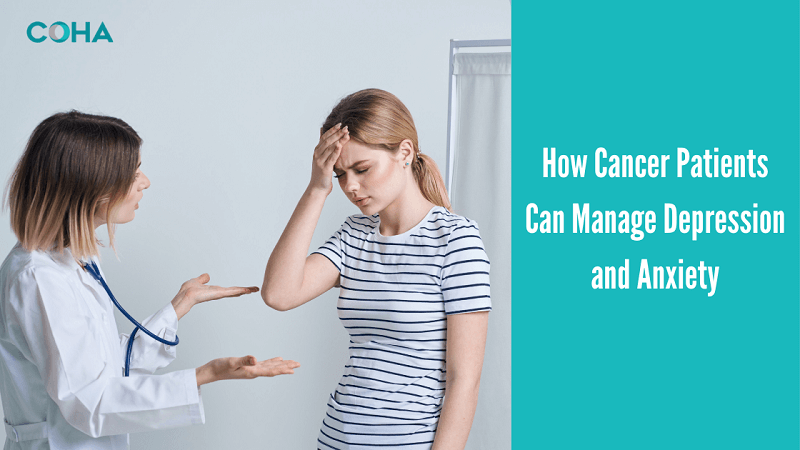


The anxiety surrounding a cancer diagnosis often affects many aspects of patients’ lives. This may lead to difficulty performing day-to-day tasks, constant worrying, and an increase in stress. This can have a drastic effect on the patient’s mental health and overall well-being. Unfortunately, depression in cancer patients is considered to be three times higher compared to the general population, and it impacts patients’ quality of life, treatment, and recovery.
However, if you or a loved one has been diagnosed with cancer, remember that anxiety and depression in cancer patients can be managed with lifestyle modifications and counseling. This article discusses the symptoms and treatment of depression in cancer patients.
Patients may feel symptoms of depression or anxiety during moments such as:
The stress levels in cancer patients range from adjusting to living with cancer to having a severe mental health disorder, such as depression.
If you are a cancer patient, then you might experience the following types of distress levels:
In this stage, you can make simple lifestyle modifications to manage your stressful situation, such as receiving a cancer diagnosis and its associated distress and emotional problems.
You may have some difficulties in making lifestyle changes to cope with cancer. Patients in this situation may have distress levels ranging from manageable stress and sadness to feelings that impact their quality of life, such as spiritual crisis, depression, and fear. Professional help may be needed to learn better coping mechanisms.
You may not be able to or be struggling greatly to make lifestyle modifications. Patients may experience symptoms such as anxiety, depression, or emotional/social behavior problems, which affect their quality of life. You might need or consider medication and professional help to control these symptoms.
Anxiety disorders can cause symptoms, such as fear and extreme worry for consistent and extended periods of time. These symptoms, upon worsening, can significantly affect your ability to live a normal life.
Almost 50% of cancer patients report going through a significant degree of distress. Patients with lung, pancreatic, and brain cancers might be more prone to reporting distress symptoms. However, many cancer patients can face anxiety and distress. Factors that make patients more vulnerable to anxiety and distress include:
Each patient will cope in different ways depending on their personality traits. However, you can find it easier to manage cancer by:
It is normal to feel anxious or stressed upon receiving a cancer diagnosis. Therefore, professional help can be sought and is recommended to manage depression, fatigue, and trouble sleeping.
Patients may feel stressed because of treatment side effects. Finding methods to manage cancer-related problems like feeling exhausted, changes in work schedule, etc., can help.
Patients may be concerned about changes in their health and personal life post-treatment. They may also be distressed before follow-up medical visits, as they might fear that there’s a chance of cancer recurrence.
Cancer that recurs after treatment may cause increased distress and feelings of hopelessness as well as bring the return of symptoms. Earlier diagnosis and receiving support from friends and family can help cancer patients manage their condition and improve their quality of life.
If you have been diagnosed with cancer or are showing symptoms of anxiety and depression during your treatment process, you should seek medical help from your doctor to manage and mitigate the condition. Contact Chesapeake Oncology Hematology Associates today for cancer diagnosis and treatment or if you have any questions concerning managing cancer and depression.
This is the first in our series of blogs where we are advising cancer patients on coping with depression and anxiety. Our next blog will provide information to patients on tackling Psychological and Social Distress.
References: